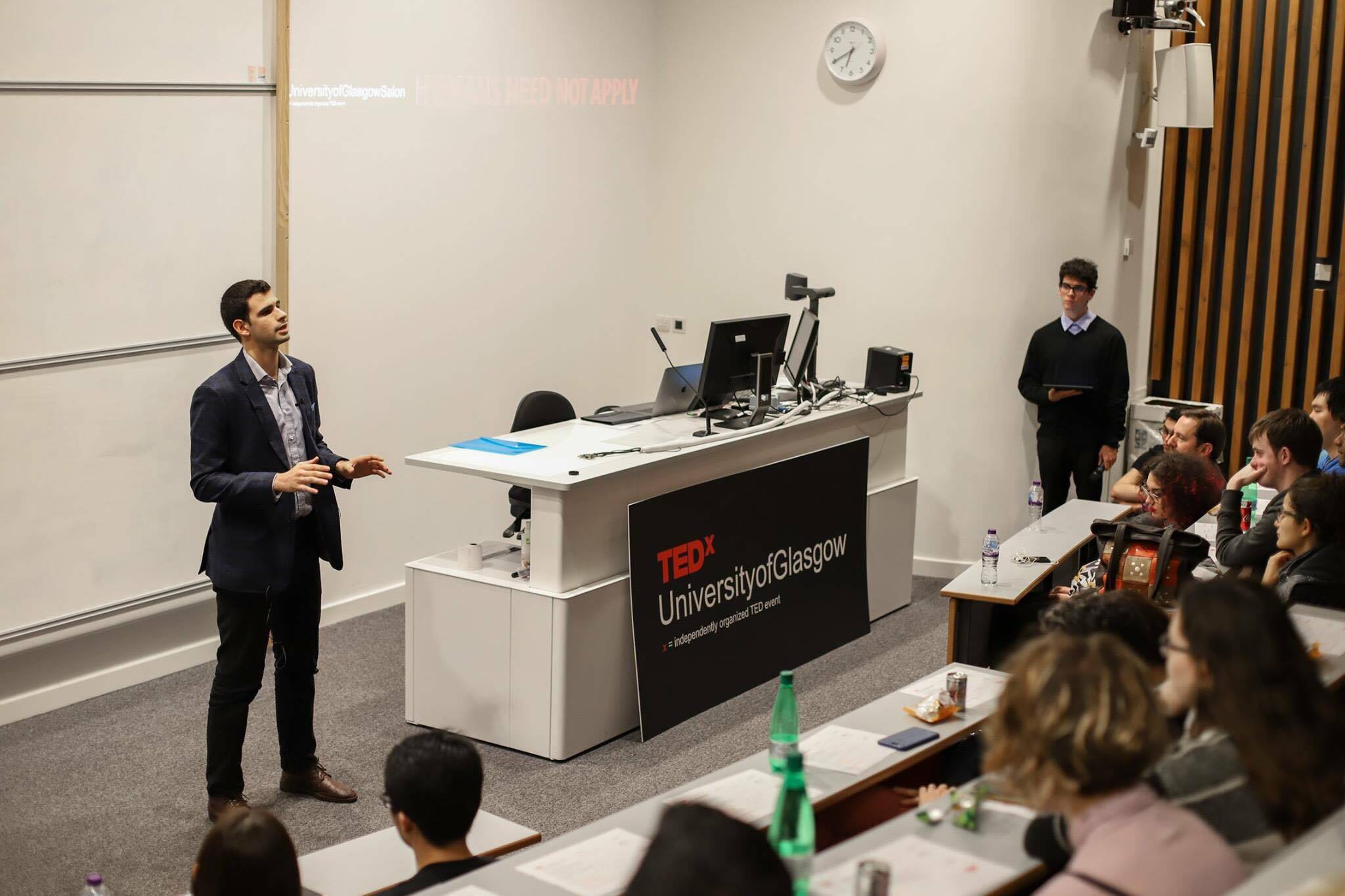Written By: Morgan Laing
Photo: TEDxUniversityofGlasgow
Event rundown from Tuesday 10 October. Kelvin Building, Lecture Theatre 257.
Technology – of all kinds – can be pretty scary. Beware your digital footprint, we’re often reminded, on the basis that every word we type could be cached and stored in cyberspace for all eternity (my tweet about my newly installed shower being as ‘Hot n Cold as a Katy Perry single’… will it follow me to my grave? Will my headstone read ‘bad sense of humour/worse taste in music’, all thanks to this 140-character pop-based joke I sent out when I was bored and my shower was being temperamental???). We’re instructed to be wary of hacking, and of digital crime. We weave horror fiction about rogue robots that become a little bit too clever. We’re informed that, at some point in the future, machines might be doing our jobs for us. And that’s where Humans Need Not Apply comes in.
Taking the form of a unique, somewhat informal mini-conference, Humans Need Not Apply is a Tedx Salon event aiming to discuss the implications that major technological advancement could have on the workforce. The event finds itself sold out, and for good reason – it’s an engaging, informative slab of tech commentary. It’s relevant, too; with progress being made in the technological arena all the time, more and more of us desperately want to know how our future is set to be impacted.
Dr. Alessandro Vinciarelli is the first to weigh in on the debate at the event. Standing in front of a screen that demands to know ‘can a robot read our minds?’, he explains the concept of non-verbal communication and insists that, in order for us to build better machines, we need to employ our knowledge and understanding of people. Humans aren’t quite redundant yet, it seems.
The enthralled audience is then shown a short Ted video that helps us understand how technology might impact the job sphere. Apparently, technology has progressed so significantly that machines can now assess credit risks, grade essays, and diagnose eye diseases. This is at once awe-inspiring and terrifying. Is there any room left for us, when a device can perform specialist tasks like these? Mercifully, our services are still required. Humans can find a way to deal with issues they’ve never encountered before; machines, at present, cannot. Believe it or not, we’re still ahead in the problem solving game.
The words of Alexandre Cohen – the president of the Glasgow University Robotics Society – go quite far to ease concerns about artificial intelligence and its potential to dominate the workplace. He asserts his view that AI can make us more productive, and proposes that, if AI were to reduce our working hours, it’d give us the opportunity to do more of what we’re passionate about. This is certainly a nice notion – but it’s one that audience members seem to be particularly sceptical of. A debate about this ensues during the Q+A session at the end, but this is positive: it proves Humans Need Not Apply is an event that gets people thinking critically and willing to analyse their own beliefs.
Finally, Katerina Manoli gives her take on the future of AI. We don’t know what could happen, she says, if AI ever surpasses human intelligence – that part remains largely unpredictable. She does raise the point that AI goals will need to align with human goals for an effective system to operate.
Humans Need Not Apply comes off as a thoroughly well-organised and compelling event. Each speaker presents a structured and accessible argument that encourages spectators really think about the issues at hand. There’s also plenty of room for debate, discussion and participation here, thanks to the Q+A session.
Do I feel like I learned a lot on this night of tech talk? Absolutely. But I leave hoping that, for now, my technology concerns continue to be as minor as slow printers and finding the right words for my pop culture-centric tweets.

